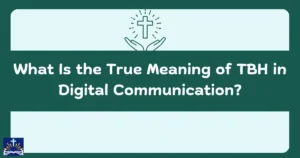Netflix has quietly removed several Christian movies, sparking concerns among faith-based audiences. Many are asking, “Why is Netflix removing Christian content?” and what this means for religious representation in media.
This move raises questions about censorship, faith-based entertainment, and Hollywood’s shifting priorities. As streaming services shape cultural narratives, the removal of Christian films could have a deeper meaning.
Let’s explore the symbolism behind Netflix’s decision, its impact on Christian viewers, and what this means for faith-based storytelling.
Stay informed and take action! Share your thoughts, explore alternative streaming services, and support Christian filmmakers. Let your voice be heard and faith-based content matters!
Netflix’s Content Strategy and Policies
Netflix continuously updates its content library to match its evolving business goals. The platform prioritizes content that drives high engagement and attracts new subscribers. This approach affects which movies and shows remain available and which ones get removed.
- Netflix focuses on content that boosts viewership and retention.
- Licensing agreements determine how long content stays.
- Low-performing content gets removed to free up space.
- The platform adapts to changing audience preferences.
- Faith-based content may not align with Netflix’s evolving goals.
Netflix’s Content Acquisition and Retention Policies
Netflix does not own all the content on its platform. Instead, it licenses many films and shows for a limited time. Once these agreements expire, Netflix must decide whether to renew them or let them go. If certain content, including Christian movies, doesn’t meet Netflix’s business priorities, they might choose not to renew it.
- Netflix licenses most of its content rather than owning it.
- Expired contracts lead to the removal of some movies and shows.
- Renewal depends on cost, viewership, and business strategy.
- Content that underperforms is less likely to get renewed.
- Popular content with high engagement has a better chance of staying.
Content Licensing and Contracts
Movies and TV shows appear on Netflix through licensing agreements with studios, distributors, and content creators. These contracts come with expiration dates, and renewing them depends on cost, viewership, and Netflix’s overall content goals.
- Netflix signs licensing deals with content creators.
- Contracts have expiration dates, leading to content removal.
- High renewal costs may lead to Netflix dropping some titles.
- Viewership plays a big role in renewal decisions.
- Business priorities affect which genres stay or go.
Reasons Behind the Removal of Christian Movies
Market Demand and Viewer Preferences
Netflix closely monitors user engagement. If Christian movies do not attract enough viewers or fail to generate strong watch-time metrics, Netflix may remove them to make space for more in-demand content.
- Netflix tracks how often users watch Christian movies.
- Low viewership can lead to content removal.
- Trending genres get priority over niche content.
- User behavior influences Netflix’s content decisions.
- Faith-based movies may not meet Netflix’s engagement goals.
Financial Considerations
Renewing content licenses can be expensive. If Netflix believes that investing in Christian movies doesn’t offer a strong return on investment, they might choose to allocate their budget elsewhere.
- Netflix has a set budget for content renewal.
- High renewal costs can make some films unprofitable.
- If faith-based movies don’t attract enough subscribers, Netflix may remove them.
- Popular mainstream content gets more financial support.
- The platform balances cost with audience demand.
Content Relevance and Curation
Netflix curates its library based on what aligns with its brand and audience preferences. If faith-based movies do not fit their evolving content strategy, they may gradually phase them out.
- Netflix selects content that fits its brand image.
- Curation depends on current audience trends.
- Faith-based films may not fit Netflix’s evolving model.
- The company prioritizes content that attracts global audiences.
- Audience shifts impact what stays and what goes.
The Controversy and Public Reaction
Public and Media Reactions
Many Christians have expressed frustration over the removal of faith-based films. Social media discussions and petitions have emerged, urging Netflix to bring back Christian content. Some media outlets have also reported on the growing concerns among faith-based viewers.
- Many Christians are upset about losing faith-based films.
- Social media discussions highlight audience frustration.
- Some petitions call for the return of Christian movies.
- Media outlets have covered the controversy.
- Netflix has yet to make an official statement on the issue.
Religious and Cultural Perspectives
For many believers, Christian movies offer inspiration and reinforce their faith. The removal of such content has raised questions about religious representation in mainstream media and whether Christian values are being sidelined.
- Christian movies play an important role in faith-based communities.
- Many believers see this as a loss of religious representation.
- Some argue that faith-based content deserves equal space.
- Religious leaders and organizations have voiced concerns.
- The debate continues over media inclusivity.
Impact on Viewers and the Christian Film Industry
Viewer Impact
Faith-based audiences rely on platforms like Netflix for clean, family-friendly entertainment. The loss of Christian films leaves them with fewer options for uplifting content.
- Many families watch Christian movies for inspiration.
- Fewer faith-based options mean limited viewing choices.
- Viewers may switch to alternative streaming platforms.
- The change affects Christian audiences worldwide.
- Faith-based communities seek other ways to access Christian films.
Impact on the Christian Film Industry
Christian filmmakers and production companies depend on streaming platforms to reach a global audience. Fewer faith-based films on Netflix could reduce exposure and limit opportunities for Christian storytellers.
- Christian filmmakers face challenges reaching audiences.
- Losing Netflix as a platform reduces industry visibility.
- Independent Christian studios may struggle financially.
- Alternative platforms could grow in popularity.
- The Christian film industry must adapt to streaming changes.
Netflix’s Future Content Strategy
Potential Changes in Content Strategy
While Netflix continues to evolve, it may still include Christian movies if they see growing demand. If more viewers engage with faith-based content, the platform might reconsider its decisions.
- Netflix adapts to audience demand over time.
- If faith-based content gains popularity, it may return.
- Viewer engagement influences Netflix’s decisions.
- The streaming industry is constantly changing.
- Future content strategies remain uncertain.
Alternative Platforms and Solutions
For those looking for Christian movies, platforms like Pure Flix, Amazon Prime, and YouTube offer a wide range of faith-based films. Supporting Christian streaming services and filmmakers can help ensure the continued production of faith-driven content.
- Pure Flix offers a faith-based streaming alternative.
- Amazon Prime and YouTube have Christian movie selections.
- Viewers can support Christian content by subscribing to these platforms.
- Faith-based production companies need audience support.
- Expanding Christian streaming services can fill the gap.
Also Read>Wolves Symbols of Strength, Loyalty & Mystery”
Final Thoughts
Netflix’s removal of Christian movies has raised concerns among faith-based audiences. While business decisions, licensing agreements, and viewer engagement influence these changes, many Christians feel disappointed by the lack of faith-based content. However, alternative streaming platforms like Pure Flix, Amazon Prime, and YouTube offer a space for Christian entertainment. Supporting these platforms and engaging with faith-based content can help ensure its presence in the media landscape.
Key Insight
Why is Netflix removing Christian movies?
Netflix removes movies based on licensing agreements, viewer engagement, and content strategy. If a film doesn’t attract enough viewers or renewing its license is too costly, Netflix may choose to remove it.
Is Netflix targeting Christian content specifically?
There is no official statement from Netflix indicating a deliberate removal of Christian content. However, many faith-based viewers believe the platform is shifting away from religious movies due to market demand and content curation strategies.
Will Netflix bring back Christian movies in the future?
If demand for Christian movies increases, Netflix may reconsider adding more faith-based content. Viewer engagement and subscription trends influence Netflix’s content decisions.
Where can I watch Christian movies if Netflix removes them?
Alternative platforms like Pure Flix, Amazon Prime, and YouTube offer a wide range of Christian movies. Some faith-based networks also provide streaming services dedicated to Christian entertainment.
How can I support Christian movies and filmmakers?
Watching, sharing, and subscribing to Christian streaming platforms help support faith-based content. Engaging with Christian films on different platforms shows media companies that there is a demand for faith-driven entertainment.

Hi! I’m Zaide Smith, the admin of Bibblehearts.com, where I strive to curate engaging content that inspires and connects our readers. With a passion for storytelling and community building, I’m dedicated to fostering a welcoming space for all.










